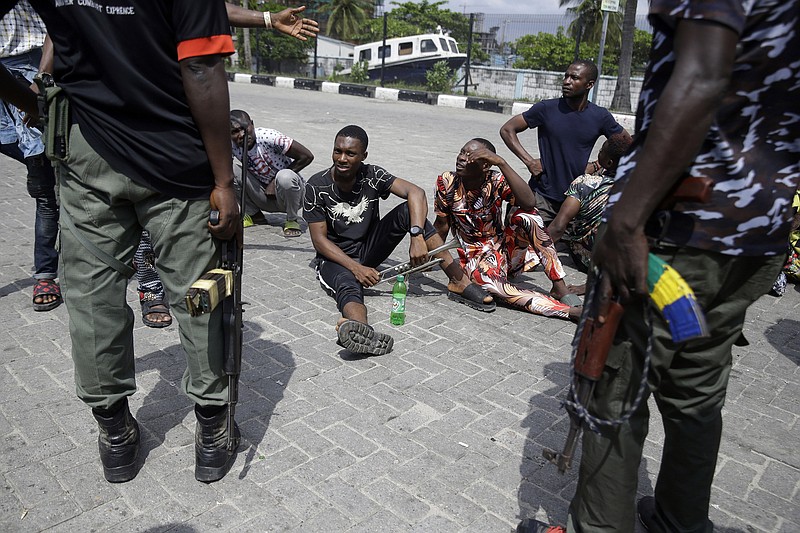LAGOS, Nigeria (AP) — At least 51 civilians have been killed in Nigeria’s unrest following days of peaceful protests over police abuses, the president said Friday, blaming “hooliganism” for the violence while asserting that security forces have used “extreme restraint.”
President Muhammadu Buhari’s comments are expected to further inflame tensions in Africa’s most populous country after Amnesty International reported that soldiers shot and killed at least 12 demonstrators Tuesday night as a large crowd sang the national anthem. The deaths sparked international condemnation.
In a statement, Buhari also said 11 policemen and seven soldiers had been killed by “rioters” as of Thursday, and “the mayhem has not stopped.” He said another 37 civilians were injured in some of Nigeria’s worst turmoil in years.
The president said the well-intentioned protests were hijacked by thugs.
But many Nigerians are upset by what the president hasn’t said. Buhari in a national address Thursday night didn’t mention the shootings, instead warning protesters against “undermining national security and law and order.” On Friday he said the government “will not fold its arms and allow miscreants and criminals continue to perpetrate acts of hooliganism.”
Resentment lingered with the smell of charred tires Friday in Nigeria’s relatively calm streets. Soldiers remained in parts of Lagos, Nigeria’s largest city, as a 24-hour curfew remained in place.
A witness of Tuesday night’s shooting, 33-year-old Isaiah Abor, ventured out anyway to visit the scene where solders had opened fire. He managed to escape the chaos.
“When (the soldiers) were making comments that the flag is not bulletproof, that’s when I knew this was going to go out of hand,” Abor said. Empty ammunition shells still littered the ground.
The president’s speech annoyed him. “The blood that stained a whole Nigerian flag, those youths were not even mentioned,” Abor said. He added: “We are not cowards. We will always come to this ground, and we will always feel for those that are gone.”
Another protester, Olatunde Joshua Oluwanifemi, said simply: “The speech killed our spirit.”
The president’s comments, “devoid of sympathy,” were worrying, said Okechukwu Nwanguma with the Rule of Law and Accountability Advocacy Center. Shielding those behind the shootings will only lead to abuses by the police and military, he said: “If those who carried out the killings did so and nothing happens, it will encourage them and others to do the same thing next time.”
But citing the president’s comments, one influential group behind the protests, the Feminist Coalition, urged youth to stay at home, saying that “we need to stay alive to pursue our dreams to build the future.”
Others disagreed. If the protests have been hijacked, then Nigerian youth should not give up the struggle and instead should “go back and re-strategize,” said Seriki Muritala with the National Youth Parliament.

